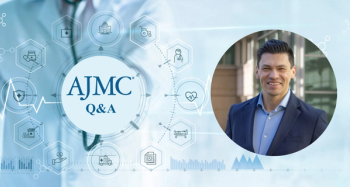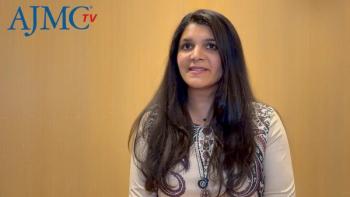
Addressing Unmet Needs in Lung Cancer to Optimize Precision Medicine and Immunotherapy: Angel Qin, MD
Angel Qin, MD, identified the critical role of immunotherapy timing and shared decision-making in small cell lung cancer while also addressing the need for more broadly applicable treatments and personalized care.
Angel Qin, MD, thoracic medical oncologist and associate professor at the University of Michigan, discussed the evolving role of immunotherapy in
Qin also served as a panelist at the Detroit Institute for Value-Based Medicine (IVBM) on the session titled "
This transcript was lightly edited; captions were auto-generated.
Transcript
How do you think clinicians should optimally sequence immunotherapy in SCLC? What are the key decision points along the treatment journey where the choice of immunotherapy regimen or its position in the treatment sequence becomes most critical?
We're seeing more and more data now that really, at some point on a patient's journey in small cell lung cancer, they probably would benefit from immunotherapy, whether that's after chemoradiation at a limited stage or as a treatment for the extensive stage. I think the crux of the issue is really trying to make sure that your patient is a fit for this regimen, that there aren't any medical problems that are going to preclude the use of immunotherapy.
I think it's going to be a really important shared decision, making sure the patients also understand the risks of what we're recommending. I think at the same time, timing is really important. For the immunotherapy, the ADRIATIC study (
In your perspective, what are the biggest "unmet needs" in lung cancer today that, if addressed, would have the profound impacts on patient outcomes and quality of life?
We've, especially in the non-small cell lung cancer space, really come so far with our targeted therapies with different biomarkers. Just this year, we saw NRG1 fusion, we saw MET IHC [immunohistochemistry], which is fantastic, but that's still a relatively small chunk of patients that are going to benefit from these targets. All of these targets exist in a couple percentage points. There's still a large patient population for which we don't really have an effective post chemo immunotherapy treatment for non-small cell. I think we need something more effective, more broadly applicable in the second line.
In small cell, we don't yet molecularly characterize them, so our decision isn't based on their mutational profile. There's a lot of work underway to do that, but it hasn't quite translated into the clinic. I might envision that one day we may treat small cell very similar to non-small cell, where, if you have X, Y and Z factors, this is what we think might be best for you, where if you have, A, B or C, this might be something that's better for you.
Newsletter
Stay ahead of policy, cost, and value—subscribe to AJMC for expert insights at the intersection of clinical care and health economics.









